7 Crucial Tips for Newborn Cloth Nappies For Beginners: Hassle-Free Start!
Are you thinking about switching to newborn cloth nappies but feel a bit nervous? You’re not alone! Many parents want to ditch disposables, but the world of reusable nappies can seem confusing at first. The truth? Cloth nappies are much easier (and cleaner) than you imagine.
They’re gentle on your baby, kinder to your wallet, and friendlier to the planet.
This guide will walk you through 7 crucial tips for newborn cloth nappies for beginners, turning doubts into confidence and making your eco-friendly journey truly hassle-free!
Info Table 1: Why Parents Choose Cloth Nappies
| Reason | Real Benefit |
|---|---|
| Saves money | Hundreds per year |
| Better for baby’s skin | No chemicals, fewer rashes |
| Reduces landfill waste | Eco-friendly choice |
| Cute designs | So many patterns & colors |
| Community support | Lots of helpful parents |
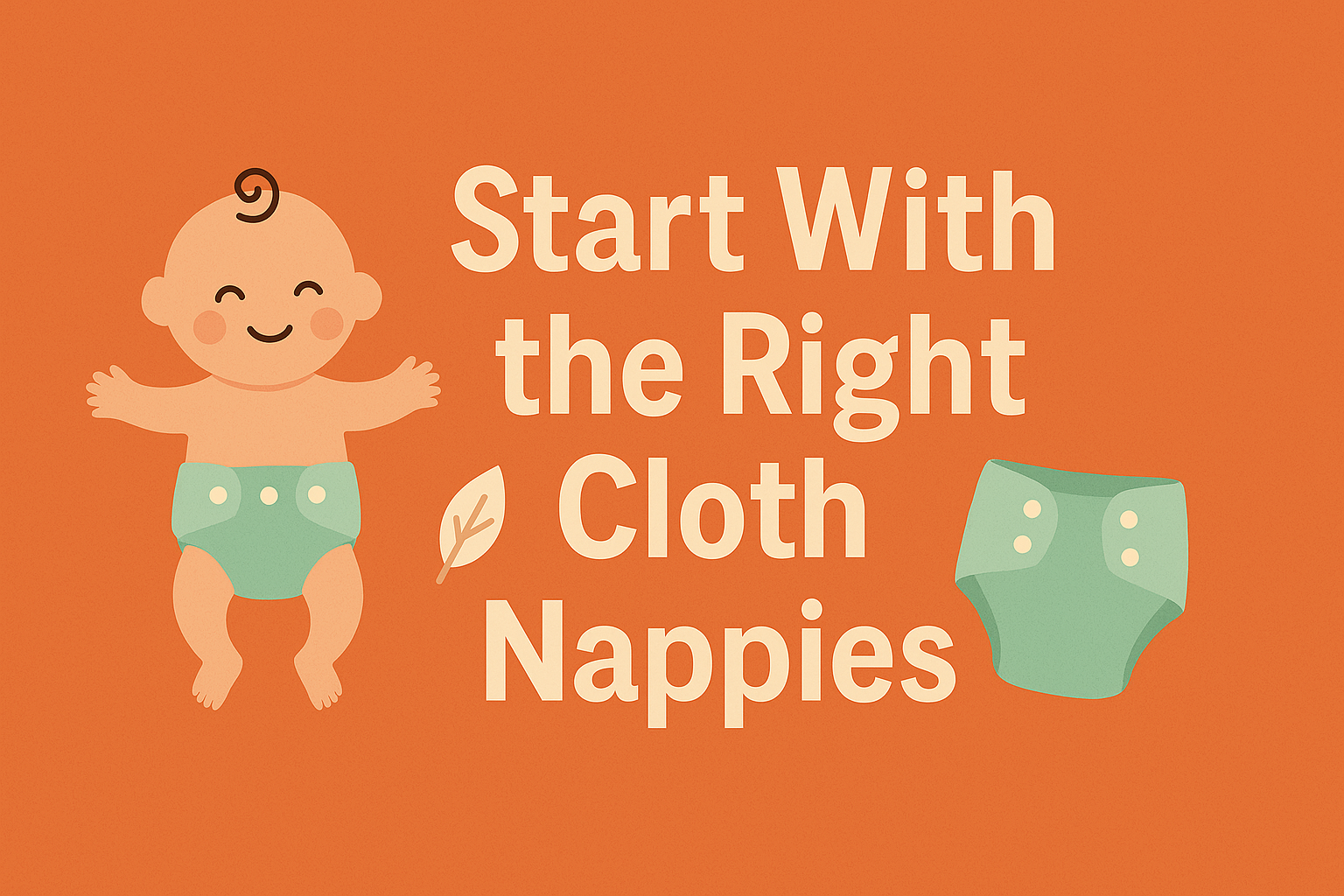
Tip 1: Start With the Right Cloth Nappies
The first—and biggest—tip: Choose nappies made for newborns!
Not all cloth nappies fit tiny babies, and a good fit means fewer leaks and more comfort.
Look for “newborn” or “XS” sizing, or consider rental kits to save money in the early weeks.
“Birth-to-potty” (one-size) nappies can be bulky on a small baby, so having 6–10 dedicated newborn nappies (even secondhand!) makes those first weeks much smoother.
Info Table 2: Nappy Types & When To Use
| Nappy Type | Best For |
|---|---|
| All-in-One (AIO) | Daytime, easy changes |
| Fitted + Cover | Nights, heavy wetters |
| Pocket Nappy | Custom absorbency |
| Prefold/Flat | Budget & fast drying |
| Hybrid/AI2 | Minimal laundry, reuse cover |
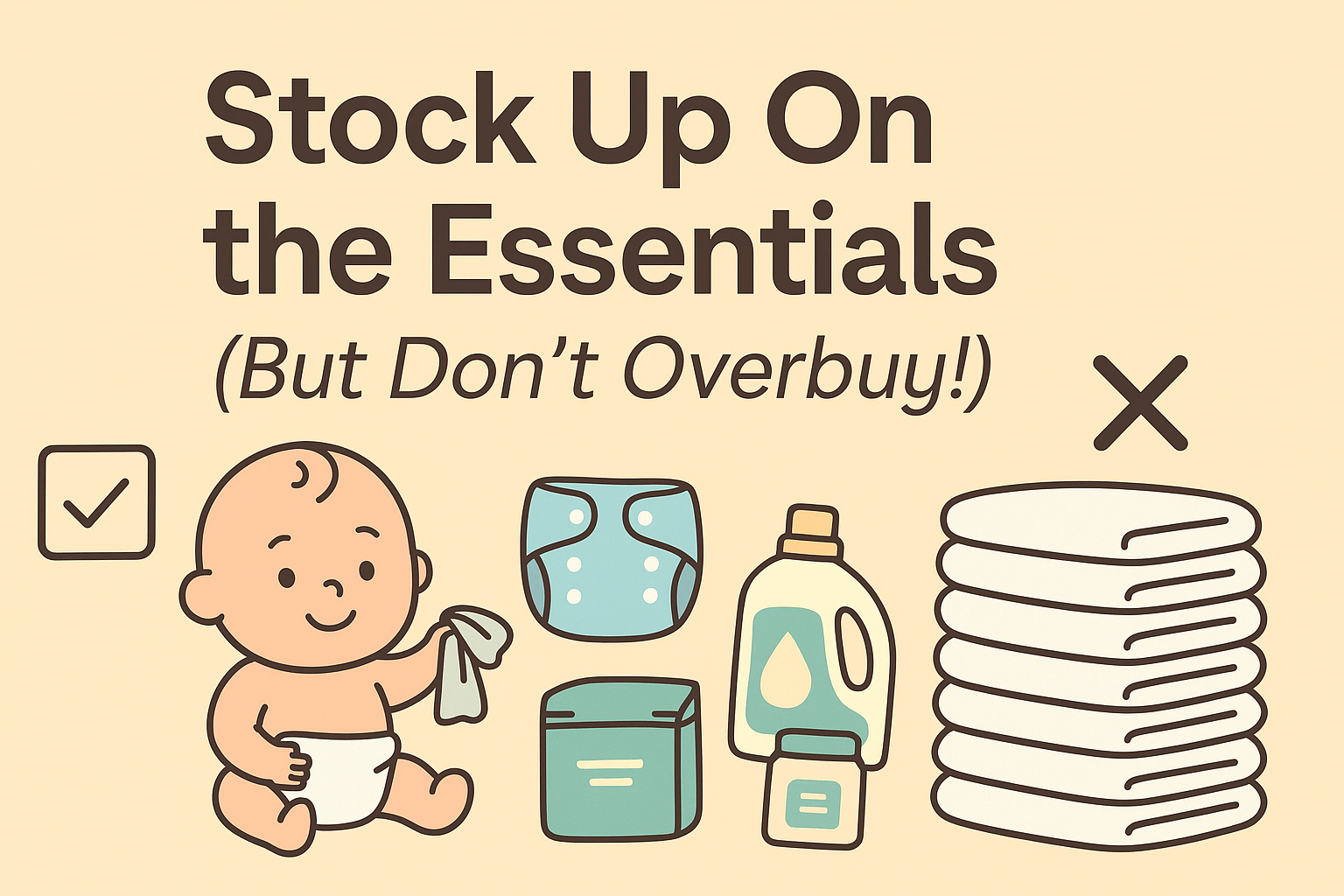
Tip 2: Stock Up On the Essentials (But Don’t Overbuy!)
You don’t need a mountain of nappies.
Start with 15–20 nappies to wash every other day, plus 2–3 waterproof wraps (if needed).
Add a few liners (to catch solids), 1–2 wet bags (for storing dirty nappies), and gentle detergent (no fabric softener!).
As you gain confidence, you’ll quickly learn which styles and extras work for your routine.
Info Table 3: Basic Starter Kit Checklist
| Essential | Why You Need It |
|---|---|
| 15–20 nappies | For 2 days’ rotation |
| 2–3 covers | Waterproof protection |
| Liners | Easy clean-up |
| Wet bags/buckets | Hygienic storage |
| Booster inserts | Extra night absorbency |
| Cloth wipes | Eco + cost-saving |
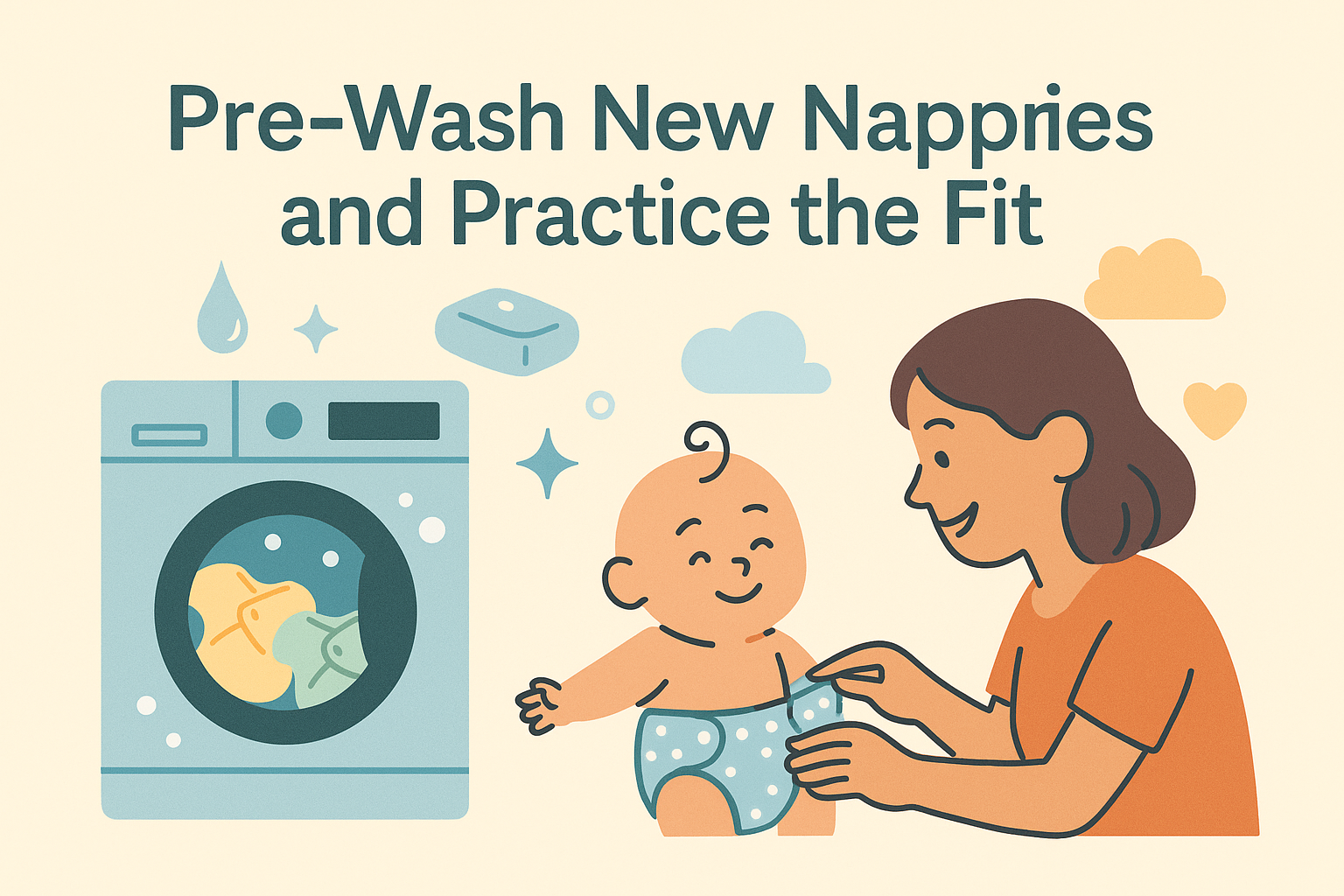
Tip 3: Pre-Wash New Nappies and Practice the Fit
All new cloth nappies need 2–3 pre-washes before first use.
This removes natural oils from the fabric and increases absorbency.
After pre-washing, try out different snap/velcro settings to get a snug fit—no gaps at the legs, but not too tight at the waist.
Practice a few nappy changes before baby arrives or during calm moments.
Quick Fit Test:
-
Can you slip two fingers under the waist? Perfect.
-
Are the legs sealed, but not leaving deep marks? Ideal.
-
Does the nappy sit below the belly button? Best for comfort.
Info Table 4: Pre-Wash & Fit Guide
| Step | Purpose |
|---|---|
| Wash 2–3 times | Boosts absorbency |
| Adjust snaps | Fits baby’s size |
| Check leg gaps | Prevents leaks |
| Check waist | Avoids red marks |
| Test with water | Should absorb quickly |
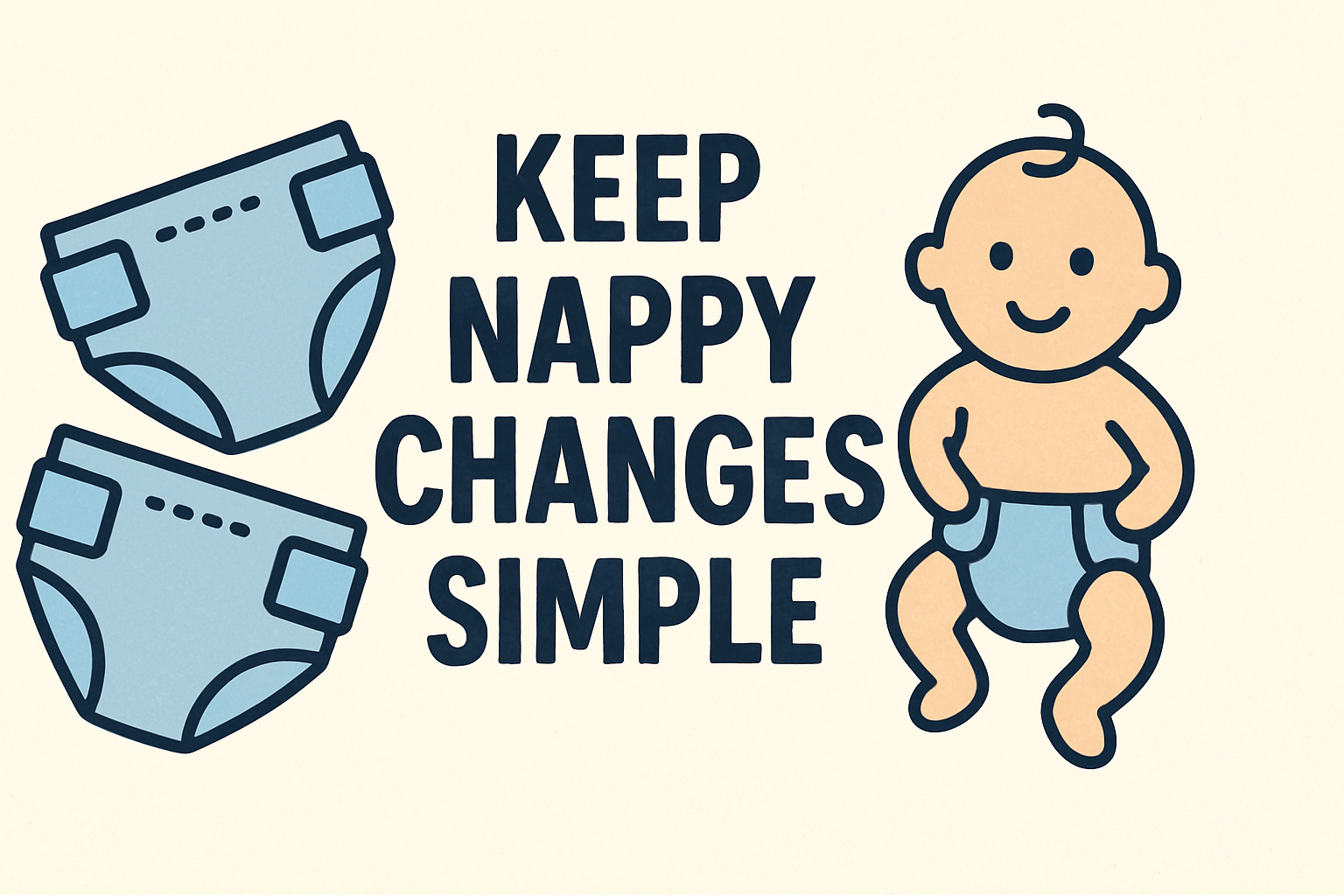
Tip 4: Keep Nappy Changes Simple
Changing a cloth nappy isn’t complicated!
-
Place a liner inside the nappy (fleece or disposable).
-
Fasten snugly.
-
Place the used nappy in your wet bag or bucket until wash day.
-
For breastfed babies, poo is water-soluble—just toss it all in the wash.
-
For older babies or formula, tip solids into the toilet first.
Change every 2–3 hours during the day, and always after a poo.
At night, use an extra booster or double up for longer sleeps.
Info Table 5: Change Routine & Frequency
| Task | How Often |
|---|---|
| Change nappy | Every 2–3 hours |
| After every poo | Immediately |
| Add night booster | For overnight |
| Wash nappies | Every 2 days |
| Sun dry (optional) | Reduces stains |
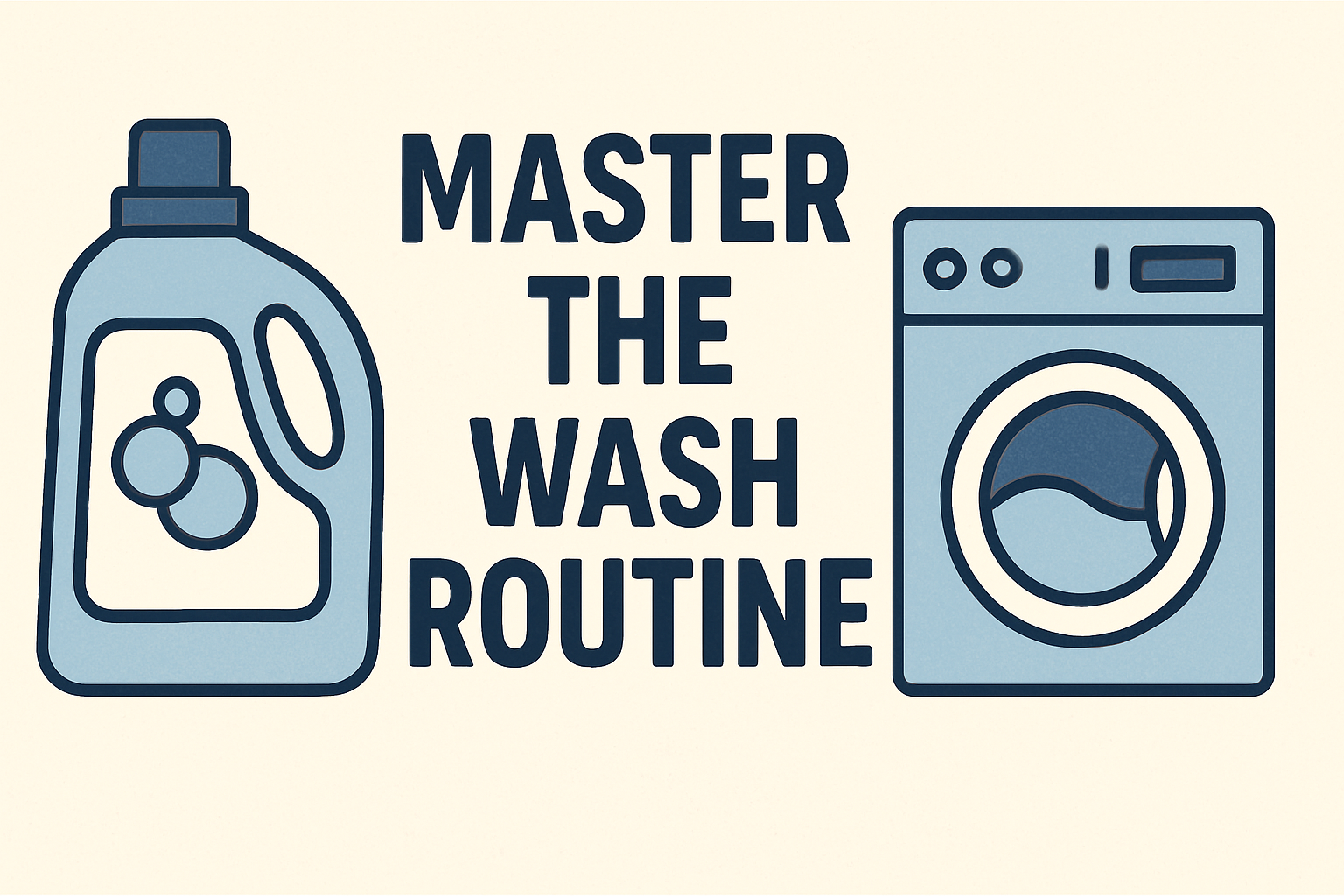
Tip 5: Master the Wash Routine
Washing cloth nappies is surprisingly easy:
-
Store dirty nappies in a dry pail or wet bag.
-
Do a cold rinse cycle first (no detergent).
-
Wash at 40–60°C (long cycle) with a quality detergent—never use fabric softener.
-
Hang nappies to dry in the sun (nature’s stain remover!) or tumble dry on low if needed.
Don’t overfill your machine. Use the recommended dose of detergent for your load size.
Pro Parent Hack: Add an extra rinse at the end to prevent detergent build-up.
Info Table 6: Washing Dos & Don’ts
| Do | Don’t |
|---|---|
| Pre-rinse nappies | Use softener |
| Use enough water | Overload machine |
| Wash every 2 days | Leave nappies too long |
| Dry in sunshine | Skip pre-wash |
| Follow brand guidelines | Use bleach often |
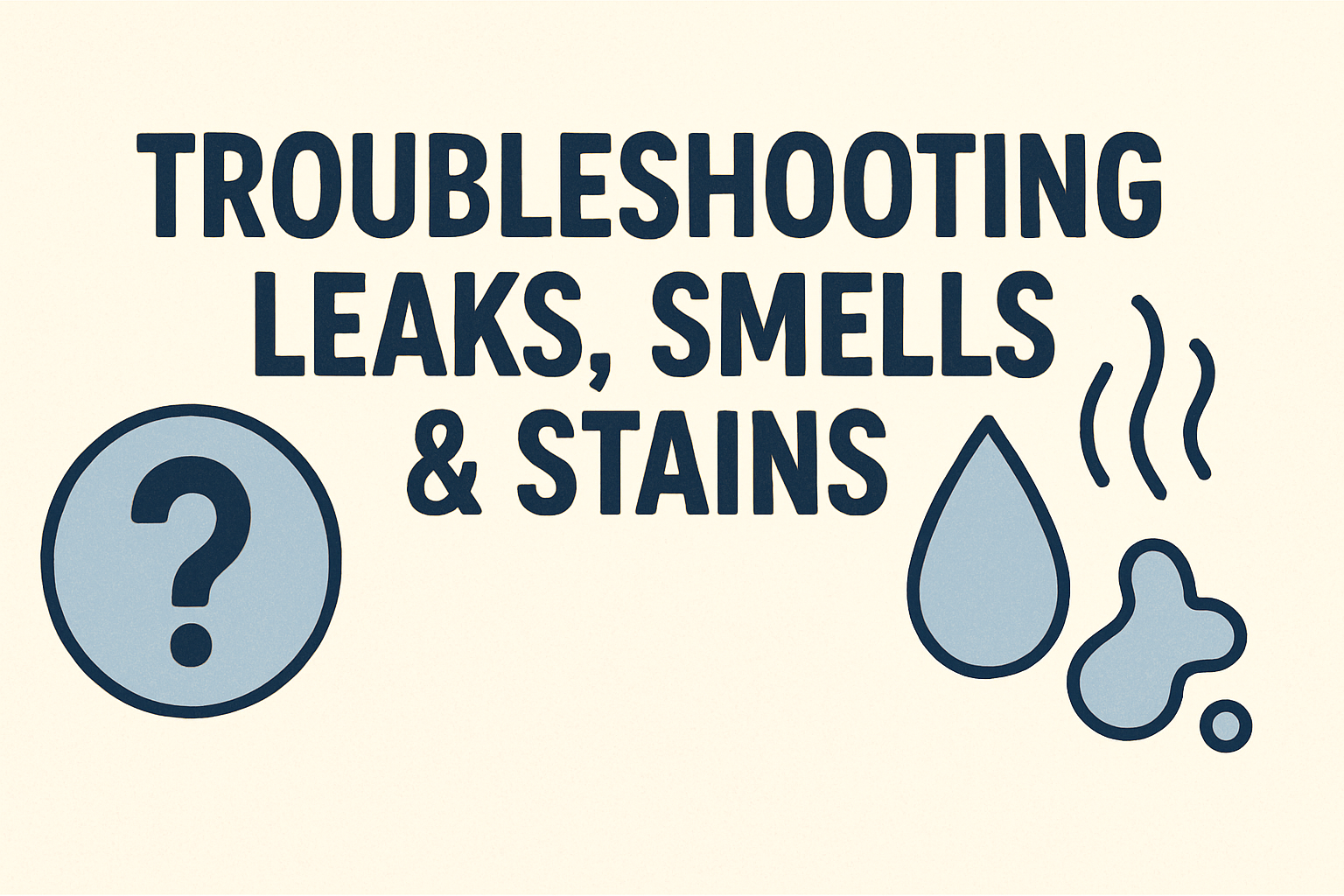
Tip 6: Troubleshooting Leaks, Smells & Stains
Leaks? Check the fit or add a booster.
Smells? Wash more frequently or use more water.
Stains? Lay nappies out in the sun—the best natural whitener!
If your baby has red marks, try loosening the fit or switching brands.
Most issues are solved with small tweaks.
Join cloth nappy groups for quick advice—real parents love sharing tips!
Info Table 7: Common Problems & Quick Fixes
| Problem | Solution |
|---|---|
| Leaking | Adjust fit, add booster |
| Smelly nappies | Wash more, rinse extra |
| Stains | Sun dry if possible |
| Rash | Change more often, rinse well |
| Red marks | Loosen snaps or velcro |
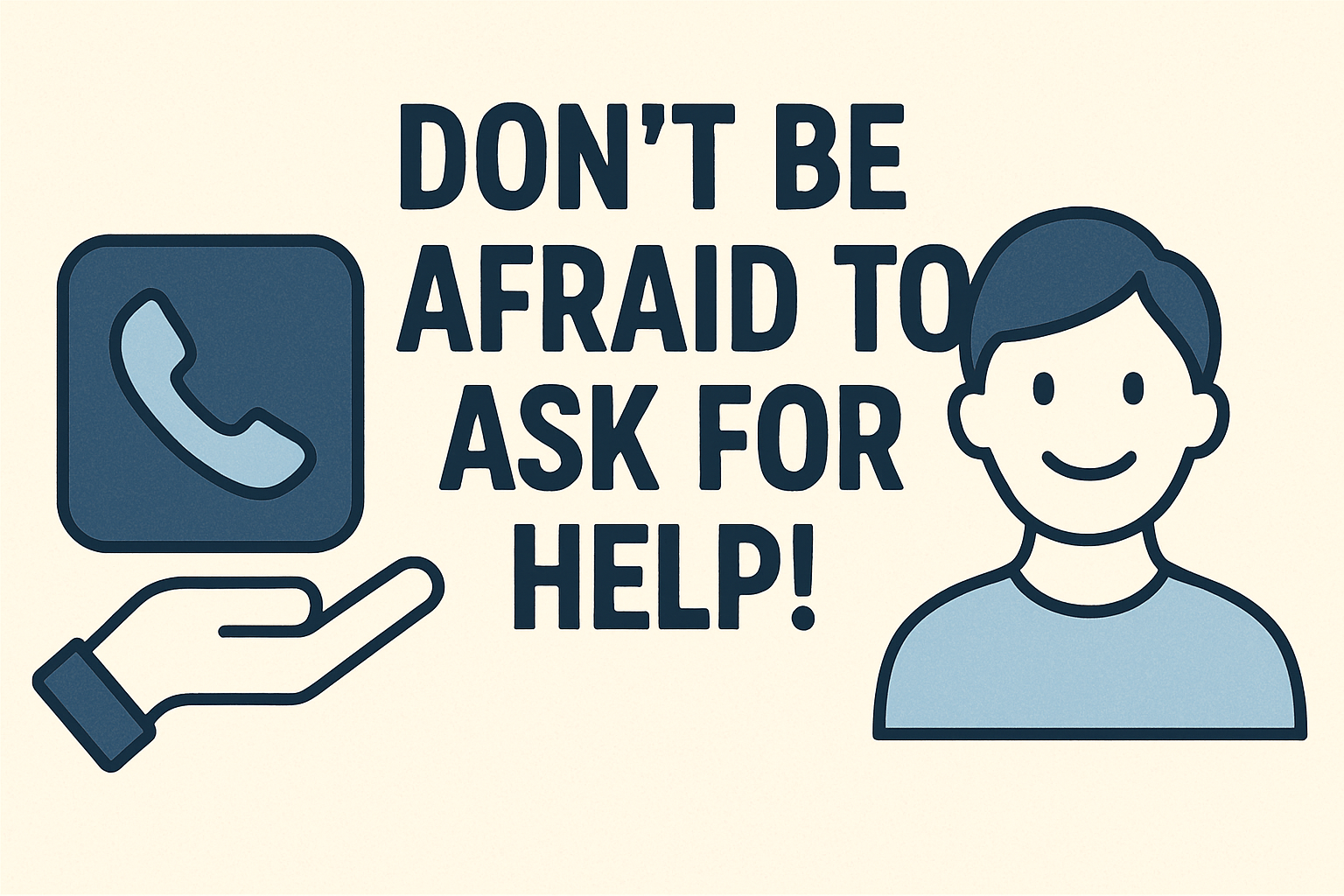
Tip 7: Don’t Be Afraid to Ask for Help!
There’s a huge community of cloth nappy users who are friendly and helpful.
Online forums, Facebook groups, and local nappy libraries offer advice, reviews, and even swap or rental kits.
If you feel overwhelmed, remember: every reusable nappy you use keeps waste out of landfill and saves money.
Start slow, celebrate progress, and don’t worry about being perfect!
For a personalized recommendation, try the Nappy Lady Free Advice Questionnaire.
And don’t forget, every family’s journey is different. Find what works for you!
Frequently Asked Questions
How many cloth nappies should I buy for a newborn?
Most parents start with 15–20. This lets you wash every two days and always have clean nappies ready.
Do I need special detergent for cloth nappies?
No, but avoid fabric softener and use enough water for a thorough rinse.
Can I use cloth nappies overnight?
Absolutely—just add a night booster for extra absorbency.
How do I store dirty nappies?
In a wet bag or dry pail with good airflow. No need to soak them in water.
Are cloth nappies more work than disposables?
Washing takes a few minutes each day, but most parents say the routine is simple after the first week.
What about leaks and stains?
A good fit and regular washing prevent most problems. Sunlight removes stains naturally.
Conclusion
Starting with newborn cloth nappies for beginners is a brave and rewarding choice! With these 7 crucial tips, you’ll skip the rookie mistakes, save money, protect your baby’s skin, and help the planet—one nappy at a time.
Remember, confidence comes with practice. Enjoy the journey and know you’re making a positive impact for your family and the environment.
Ready for more?
-
Download printable guides,
-
Join online cloth nappy communities,
-
Or try a nappy library for support.
Share this content:













Post Comment